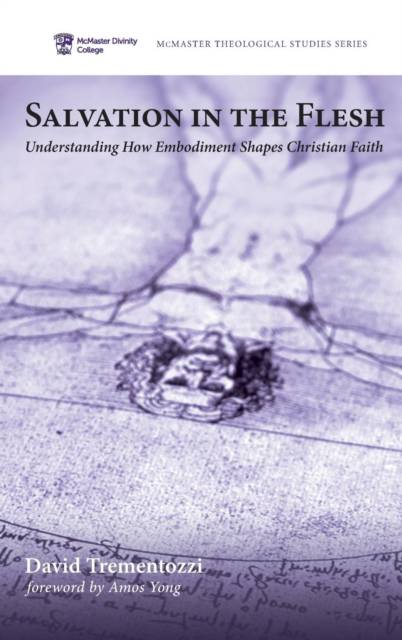
Bedankt voor het vertrouwen het afgelopen jaar! Om jou te bedanken bieden we GRATIS verzending (in België) aan op alles gedurende de hele maand januari.
- Afhalen na 1 uur in een winkel met voorraad
- In januari gratis thuislevering in België
- Ruim aanbod met 7 miljoen producten
Bedankt voor het vertrouwen het afgelopen jaar! Om jou te bedanken bieden we GRATIS verzending (in België) aan op alles gedurende de hele maand januari.
- Afhalen na 1 uur in een winkel met voorraad
- In januari gratis thuislevering in België
- Ruim aanbod met 7 miljoen producten
Zoeken
€ 92,95
+ 185 punten
Uitvoering
Omschrijving
David Trementozzi contends that conservative-traditional Christianity has uncritically adopted an intellectualist (i.e., rationally-driven) view of faith in its understanding and practice of salvation. Throughout, he maintains that an intellectualist soteriology should be rejected because it prioritizes the rational over other behavioral and affective aspects of faith. An intellectualist rendering of salvation is incomplete because human experience is neither abstract nor gnostic--it is embodied and experientially relevant. An intellectualist soteriology simply cannot account for the dynamic and transforming possibilities of saving grace. Salvation in the Flesh offers an innovative perspective on the embodied nature of faith and the centrality of the Holy Spirit in the Christian doctrine of salvation. Drawing from the cognitive neurosciences and psychology, Trementozzi argues for a holistic awareness of cognition to better inform an embodied understanding of faith. In dialogue with the cognitive sciences, he appropriates Jonathan Edwards' theology of religious affections, early church practices, and pentecostal spirituality to highlight the soteriological significance of orthodoxy, orthopraxy, and orthopathy for a renewal soteriology of embodiment. In doing so, Trementozzi offers a vision of salvation that more thoroughly accounts for the multifarious ways God's saving grace interacts with human flesh and blood.
Specificaties
Betrokkenen
- Auteur(s):
- Uitgeverij:
Inhoud
- Aantal bladzijden:
- 330
- Taal:
- Engels
- Reeks:
- Reeksnummer:
- nr. 7
Eigenschappen
- Productcode (EAN):
- 9781498242905
- Verschijningsdatum:
- 1/02/2018
- Uitvoering:
- Hardcover
- Formaat:
- Genaaid
- Afmetingen:
- 152 mm x 229 mm
- Gewicht:
- 612 g

Alleen bij Standaard Boekhandel
+ 185 punten op je klantenkaart van Standaard Boekhandel
Beoordelingen
We publiceren alleen reviews die voldoen aan de voorwaarden voor reviews. Bekijk onze voorwaarden voor reviews.









